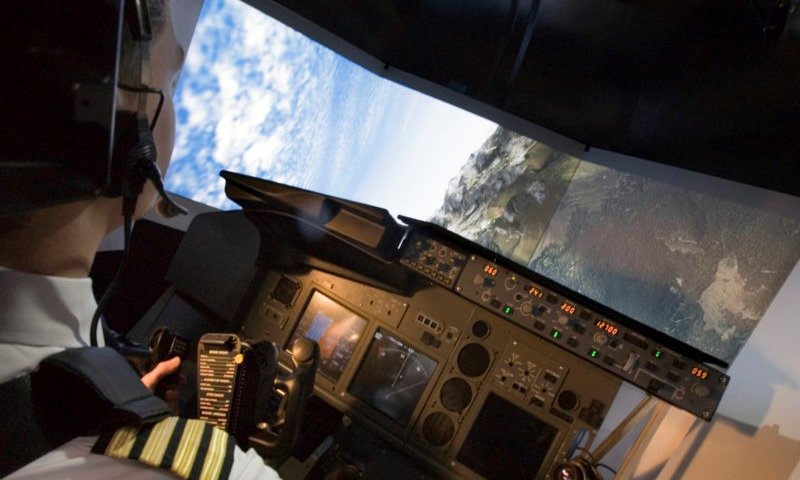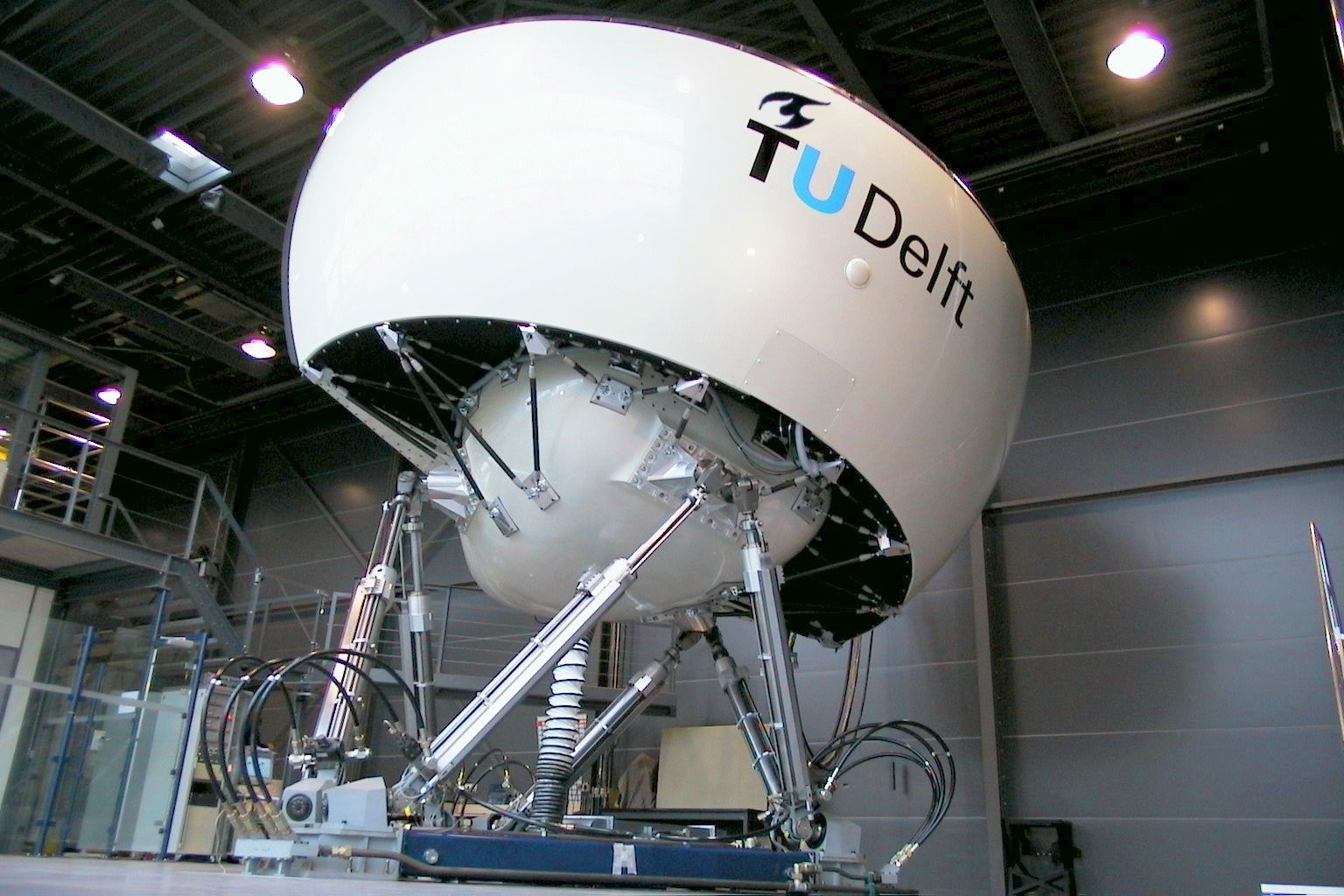Unpredictable training better prepares pilots for emergencies
When an emergency suddenly occurs during flight, it can be very difficult for pilots to respond correctly. This is why aviation authorities have ruled that the annual training that pilots receive should now include a specific focus on managing startle and surprise. Researcher Annemarie Landman used flight simulators to explore how such training should be realized. On 4 September, she will defend her thesis on the subject of ‘startle and surprise’, a joint project of the TU Delft and TNO. This will be followed by a symposium at TNO Soesterberg on 26 September. One of Landman's key conclusions is that simulator training should be made more unpredictable and varied.
Confusion in the cockpit
The accident involving Air France flight 447 in 2009 is a well-known example of confusion playing a role in the cockpit. While flying in cruise at night, the autopilot suddenly disconnected and the flight control system switched to a mode that no longer protects against the aircraft stalling. This means that it loses the lift required for normal flight. At the same time, the instruments in the cockpit gave conflicting information. The aircraft crashed into the Atlantic Ocean. The pilots were unable to save it. For several minutes, they had no idea what the problem was. In response to this and other accidents, the aircraft authorities recommended that pilots should in the future be better prepared for such situations through “startle and surprise” training.
Predictable training
Annemarie Landman, PhD researcher at TU Delft and TNO Soesterberg, investigated how pilots can train to deal with surprise and stress in the safe environment of a flight simulator. Landman: “Of course, emergencies in the simulator can never be as surprising and stressful as in real life. However, I don’t think that is necessary. Our research shows that simulator training can already be significantly improved if part of it is made somewhat less predictable and if the training scenarios are more varied.”
The training scenarios currently used can be very one-track and predictable, because many companies have only a limited number of scenarios available and pilots tell each other about the training content. As a result, the pilot knows what to expect and is ready to respond to the ‘engine failure or fire alarm script’. Predictable scenarios actually form a good basis for practice and are unavoidable in tests, because these have to be the same for everyone. But if that is all there is, then pilots never truly train to recognise and analyse situations, which is also required in a real emergency scenario.
Landman: “If you want to become a good boxer, it’s not enough simply to practice hitting a box ball. You actually have to spar against unpredictable opponents in order to learn how to react.”
“We also investigated a procedure that pilots could apply to analyse a situation when they are surprised. It’s a simple checklist that starts with consciously regulating stress levels, then checking the most important variables for flight before going on to analyse the problem. Approaching the problem in a structured, step-by-step manner helps to reduce stress. The results in the simulator were promising, but further research is needed to confirm if the approach actually works in genuine emergencies.
Combination of surprise and stress
The reason why it can be difficult for pilots to respond appropriately to an emergency is a very human problem. Annemarie Landman: “The essence of the problem1 is the combination of surprise and stress. Surprise signals to our brains that something is not right in your understanding of the situation and that we need to investigate and modify it. Unless you can understand what’s happening, it’s difficult to interpret what you see correctly. Your perspective is determined by your assumptions about the situation. As soon as you understand what’s wrong, everything falls into place.
But if danger is also involved, as in the case when flying, being startled can also cause high levels of stress. Stress makes it more difficult to analyse the situation and adapt your understanding. In the worst-case scenario, you lose your sense of ‘grip’ on the situation, increasing stress levels still further. This can cause you to completely lock up. If it happens in the cockpit, a pilot can start acting illogically, no longer understanding alarms or not even noticing important information.” In a simulator experiment2, Landman demonstrated that pilots had more difficulty responding effectively to emergencies if they were unexpected.
“Of course, flying is extremely safe and pilots already receive outstanding training. What my study has shown is that even in the safe environment of a flight simulator, it’s possible to train even more effectively to deal with startle and surprise.”
More information
Contact info:
Annemarie Landman: +31 (0) 645800767, h.m.landman@tudelft.nl
Ineke Boneschansker: 06 140 151 19, i.boneschansker@tudelft.nl
TNO symposium:
This dissertation has led to an international symposium being organised on the subject; it will be held at TNO in Soesterberg on Thursday, 26 September. More information about the symposium can be found on the TNO website.
Publications:
1 Landman, A., Groen, E. L., van Paassen, M. M., Bronkhorst, A. W., & Mulder, M. (2017). Dealing with unexpected events on the flight deck: a conceptual model of startle and surprise. Human factors, 59(8), 1161-1172.
2 Landman, A., Groen, E. L., Van Paassen, M. M., Bronkhorst, A. W., & Mulder, M. (2017). The influence of surprise on upset recovery performance in airline pilots. The International Journal of Aerospace Psychology, 27(1-2), 2-14.
3 Landman, A., van Oorschot, P., van Paassen, M. M., Groen, E. L., Bronkhorst, A. W., & Mulder, M. (2018). Training pilots for unexpected events: a simulator study on the advantage of unpredictable and variable scenarios. Human factors, 60(6), 793-805.

